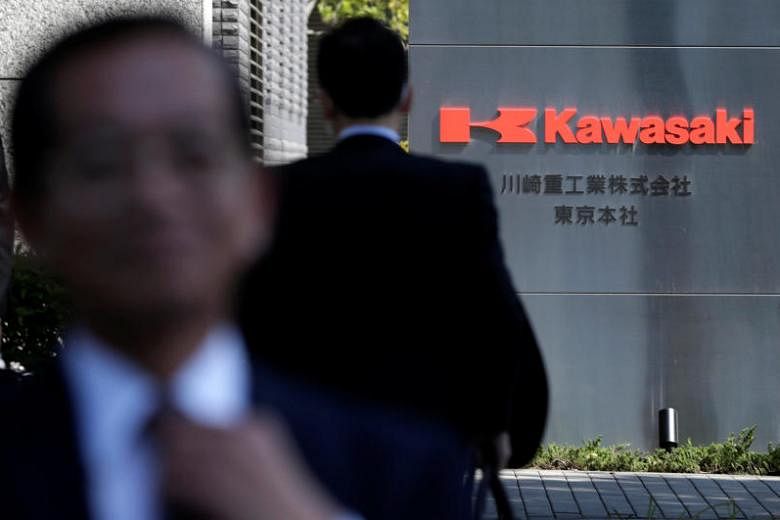TOKYO - A 14cm crack in a shinkansen undercarriage last December - just 3cm from a rupture that could have led to a lethal derailment - was due to the failure by manufacturer Kawasaki Heavy Industries to meet basic safety standards, it has emerged.
The steel used for the frame was meant to be at least 7mm thick. But workers, who blindly followed directions from an ignorant foreman instead of taking guidance from the prescribed regulations, shaved the metal to only 4.7mm at its thinnest so as to weld the steel to another part, the authorities said last week.
The frame in question was manufactured in February 2007 and had weakened over years of wear and tear. This was one of 147 frames supplied by Kawasaki Heavy Industries to operators West Japan Railway (JR West) and Central Japan Railway (JR Central or JR Tokai), all of which are being replaced.
The incident on Dec 11 last year had marred Japan's pristine bullet train record since the first shinkansen service started in 1964.
While there were no casualties among the 1,000 passengers, it was nonetheless billed as the shinkansen's first "serious incident" by Japan's Transport Safety Board.
The shinkansen train service Nozomi 34 was stopped after 3½ hours into its five-hour journey between Hakata station in downtown Fukuoka in the south-west and the central Tokyo station. Telltale signs of a major issue - namely a foul smell and an abnormal sound - had been detected earlier.
The probe into the shinkansen crack led Transport Minister Keiichi Ishii to vow last Friday (March 2): "Japan will fundamentally verify the design, manufacture and inspection processes of all shinkansen undercarriage parts, and look at ways to educate workers and eradicate mistakes in the process."
Minister of Economy, Trade and Industry Hiroshige Seko added that trust in Japan's manufacturing industry on the whole had been shaken, and urged Kawasaki Heavy Industries to take vigorous steps to ensure there was no impact on infrastructure exports.
The latest blow-up came after a string of scandals last year involving corporate governance, quality control and data falsification which implicated august manufacturers such as Kobe Steel, Mitsubishi Materials and Toray Industries, as well as carmakers Nissan and Subaru.
Kobe Steel is set to release results of an external probe on Tuesday, and its chief executive Hiroya Kawasaki is said to be thinking of stepping down over the scandal, which has led to lawsuits abroad and tainted the company's name. Japan's third-largest steelmaker will also likely announce steps to strengthen its compliance measures.
Subaru, meanwhile, announced last Friday that more misconduct in falsifying fuel effiency data had been uncovered in an internal probe following the first reports of data doctoring in December. Three executives, including company chairman Jun Kondo, will be resigning.
But what set the shinkansen incident apart from these cases is that while the rest also involved compliance issues, basic safety standards had not been compromised.
The conservative Yomiuri Shimbun was scathing in an editorial on Sunday, slamming all parties for a "lack of responsibility to passengers' lives". Both Kawasaki Heavy Industries and JR West were culpable, it said, the former for its negligence and the latter for disregarding the alarm bells for hours until it pulled the train from service.


